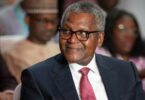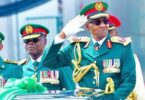BBC News, Harare
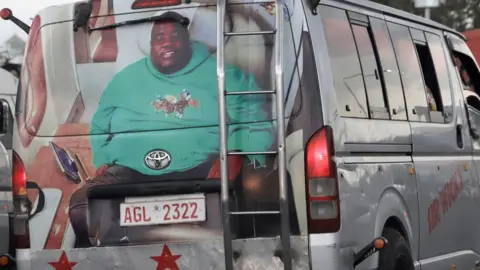 BBC
BBCA flashy tycoon in Zimbabwe has a nation entranced – some beguiled, others alarmed – by his habit of giving away cars along with wads of cash to those he deems patriotic – even presenting them to those he has never met.
Mercedes-Benzes, Toyota SUVs, Range Rovers are Wicknell Chivayo’s vehicles of choice for the recipients, who range from music stars, down-at-heel gospel singers, footballers, church leaders and those loyal to the ruling Zanu-PF party.
The controversial 44-year-old is himself partial to a white Royals Royce and has a fleet of personalised luxury cars, some of which he has also started giving away as he gets in newer models.
For years “Sir Wicknell”, as he calls himself, has loved to boast about his riches via Instagram – details the tabloids lap up – but while he is open about how he spends his money, he is less so about how he makes it as he faces scrutiny over the source of his wealth in a country where life is a daily struggle for most people.
In the last year or so his social media account has also been awash with posts about his donations.
They follow a similar pattern: a photo of a gleaming car with balloons tied to it – sometimes with a big bow on its bonnet – is accompanied with a message of congratulations to someone with instructions about where they should collect it, usually from one of various luxury car dealerships he uses in the capital, Harare.
“Please GO AND SEE VICTOR at EXQUISITE MOTORS, your brand new 2025 Range Rover Autobiography is FULLY PAID FOR and ready for collection,” he told top musician Jah Prayzah last month, adding that $150,000 (£111,000) in cash was also awaiting him there.
“This is just a small token of my gratitude for your IMMENSE contribution to Zimbabwean music and your patriotism in uniting thousands of people through music, preaching PEACE, preaching LOVE and preaching UNITY in every song.”
The volume of his “public gifting” has become almost frenzied – he even reposts humorous memes about it. On social media, Zanu-PF accounts have been lavishing him in praise, commending his philanthropy.
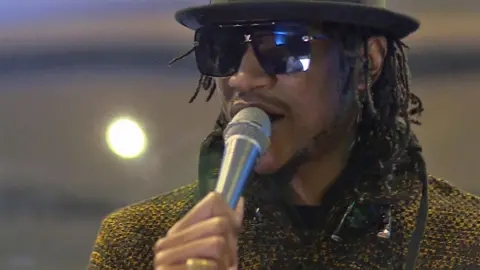
In private Sir Wicknell – as everyone knows him – has also dished out houses and study scholarships to followers of his apostolic church, the Zion Christian Church, known for their white garments and worshipping outdoors.
The softly spoken, heavy-set businessman has come to symbolise Zimbabwe’s growing “flex culture” – the desire to flash one’s wealth in person and online.
“$hopping and spending money are just some of my hobbies,” he wrote in 2013, when he first started on Instagram, next to a hotel trolley full of his purchases.
This was followed not long after by the quip: “Damn being rich is a headache at times” and a photo of his vast shoe collection as he tried to decide whether to wear a pair of Louis Vuittons or Salvatore Ferragamos.
And so it has continued, with holidays to Dubai, New York, Paris, London and business trips to Johannesburg, Shanghai and New Delhi – and most recently posts about his new private jet.
He also loves to display his proximity to power – posting photos of himself with politicians, from Zimbabwe’s late President Robert Mugabe and his successor Emmerson Mnangagwa to, more recently, other African leaders such as Tanzania’s Samia Suluhu Hassan and Kenya’s William Ruto.
“He is very hands-on with his businesses dealings, very much on the ground and keeping tabs on how every cent is spent,” a businessman, who has previously dealt with Mr Chivayo and asked to remain anonymous, told the BBC.
“It’s clear that he is politically protected,” he said.
In Cry Havoc, the late British mercenary and coup plotter Simon Mann‘s 2011 memoir of his time incarcerated in Zimbabwe’s Chikurubi Maximum Prison, the former British army officer said his “well-educated” fellow inmate Wicknell warned him never to criticise Zanu-PF.
The pair were in the same cell block – Mann serving four years for his role in a failed coup attempt in Equatorial Guinea in 2004 and Chivayo a couple of years for fraud.
“In Africa the unsolicited gift is massively powerful,” Mann quoted him as saying – a seemingly prophetic comment.
Between them they paid in cigarettes for the services of a prisoner, serving 94 years for armed robbery, to do their laundry. Mann said Chivayo insisted on referring to him as their “butler”.
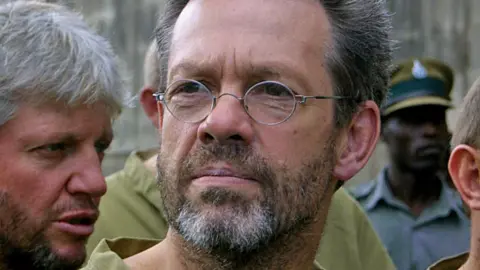 AFP/Getty Images
AFP/Getty ImagesThe two remained friends with Sir Wicknell posting a smiling photo of them together in 2013 – a year that seems to have been a turning point for him.
It was when, as well as taking to Instagram, his company Intratrek Zimbabwe and a Chinese firm won a tender to build a solar power plant worth $172.8m.
But the project later became embroiled in fraud allegations – court records several years later state that Intratrek had been paid an advance to begin work on the 100MW plant in Gwanda but failed to deliver as expected to the state-owned Zimbabwe Power Company (ZPC).
He in turn sued ZPC for cancelling its contact over the dispute. He won that case and was later acquitted of all the criminal charges.
Sir Wicknell is media shy, has spoken of his dislike of journalists and politely declined my request for an interview.
But on a rare outing on a breakfast radio show last year, he was asked directly how he made his money.
In bashful tones, he said his main business was government tenders secured with foreign partners in the areas of renewable energy, engineering procurement, construction and power projects. He said he also had businesses in Kenya, South Africa and Tanzania.
Late last year, his company IMC Communications was licensed as the partner for Elon Musk’s Starlink satellite internet service provider.
On Instagram, he has been much more brash about his “Midas touch” – saying he is a “hustler” who works hard. He also attributes his success as a “self-made millionaire” to his humble background growing up Harare’s satellite township of Chitungwiza, where his family struggled after his father died when he was aged 10.
He tends to repost “throw-back” photos to his late teens when through a family friend he got a job as a wages clerk at a bus company. “I remember I was the only one my age with a cell phone in Chitungwiza,” he has said about his hard-working ethic.
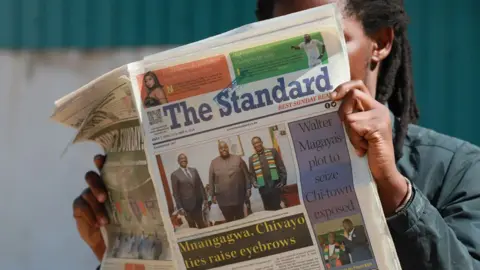
An avowed Zanu-PF supporter he has previously attributed his success to the party’s empowerment policy, which was launched in 2013 and forced all companies to cede economic control to black Zimbabweans.
Some see him as a successful example of this indigenisation policy, creating a new class of black businessmen, but others believe some of his wealth is a result of corruption and murky relationships with those in power – which he vehemently denies.
Questioned in February about Sir Wicknell’s predilection for giving away cars, President Mnangagwa dismissed an accusation that the businessman was acting as his frontman. “Where would I get the money to give him?… You can’t bother me about someone who is philanthropic,” he told journalists.
The Zimbabwe Anti-Corruption Commission (ZACC) did launch an inquiry last year after South African investigative non-profit organisation Open Secrets alleged Chivayo had received a windfall of millions of dollars as the facilitator of a tender to supply election materials to the Zimbabwe Electoral Commission (Zec) in 2023.
The scandal ballooned when a leaked audio message purportedly of Mr Chivayo talking about the deal also seemed to implicate two other businessmen by consoling them for failing to get promised kickbacks, suggesting many more deals were in the pipeline as “we have them in vice-like grip”.
The fallout was spectacular. Zec denied any dealings with Mr Chivayo or the other men, all of whom denied the allegations – and a year on ZACC has not charged anyone.
Mr Chivayo said the audio must have been a deep fake, generated through sophisticated technology. He also apologised to the president for any impression the audio may have created that the first family was corrupt.
But not long afterwards, the two businessmen mentioned in the audio were arrested and charged with misappropriating around $7m in a separate case. They deny the accusations, linked to a presidential goat scheme tender, and have spent almost a year in jail waiting for the trial to begin.
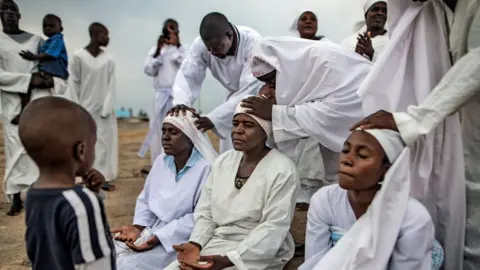 NurPhoto/Getty Images
NurPhoto/Getty ImagesThis week there has been more hoo-ha about a supposed leak over a document from March about an alleged $500m contract with Mr Chivayo’s name listed as a director of a company to supply cancer treatment equipment to the Zimbabwe government for four years.
The outrage is over the fact that if it is true, it did not go through a public tendering process. The government and Mr Chivayo have dismissed the allegations, pointing out that the so-called contract touted as evidence is unsigned.
“For a whole group of opposition outfits to team up and make noise about an unsigned FAKE document is an embarrassing desperation for political relevance,” Mr Chivayo said.
The father of two, not long remarried at an elaborate wedding ceremony with more than 15,000 guests, has often said he is not interested in becoming a politician.
For him it is all about the money – and he says he is determined to see off his “haters”. Posing by his jet recently, he wore a tracksuit with a giant “B” emblazoned on his tracksuit, saying: “Take note the ‘B’ is the inevitable billionaire status coming my way against all odds.”
But his close ties with power, which have allowed him to become rich, mean he will always fly close to controversy.
You may also be interested in:
 Getty Images/BBC
Getty Images/BBC



